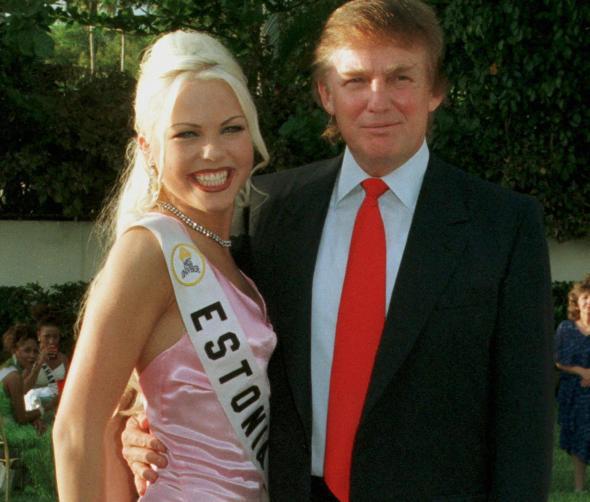Sexual assault allegations against Donald Trump continue to multiply, seeming to confirm the candidate’s instantly notorious boasts about kissing and groping women without their consent in a 2005 Access Hollywood video. “It now seems very clear,” Michelle Obama stated in her eloquent address on Thursday, “that this wasn’t an isolated incident.”
Among the latest accusations to surface, Cathy Heller claimed that Trump grabbed and kissed her against her will in 1997. Kristin Anderson recounted that Trump “just stuck his hands” up her skirt in the early 1990s, touching her vagina through her underwear. Summer Zervos described Trump grabbing her breast and kissing her “very aggressively” in 2007. These allegations follow on the heels of other similar accounts involving the nonconsensual kissing and touching of various intimate body parts.
Trump’s despicable boasts, along with the increasingly likely prospect that they described an actual pattern of conduct, has generated righteous outrage. But commentators have largely overlooked an important fact about these allegations. In nearly every state, sexual contact without consent is considered a crime. And while the Model Penal Code’s sexual assault provisions are currently undergoing revision by the American Law Institute, a preliminary draft underscores that “the decision to penalize some sexual touching short of penetration is noncontroversial.”
To be sure, sexual contact statutes—like rape law generally—are woefully under-enforced. Even so, the existence of criminal sanctions for non-penetrative sexual touching is testament to how egregious the allegations against Trump really are.
To put this point in stark relief, consider the case of Jessica Leeds. Leeds recently reported that, on a flight decades ago, Trump lifted the airplane armrest between them and used his hands “like an octopus,” grabbing her breasts and trying to put his hand up her skirt. This behavior undoubtedly qualifies as a profound sexual violation falling on a spectrum that includes sexual objectification, degradation, and harassment. But it is more: the alleged airplane assault also constitutes a crime—in this case, a federal crime.
Federal law (which applies to travel through the airways) prohibits a person from engaging without permission in sexual contact, which includes “the intentional touching, either directly or through the clothing,” of the genitalia, breast, or inner thigh. While the statute is not invoked commonly, it neatly applies to facts that bear a striking resemblance to Leeds’s account. For instance, the 2008 trial of Yochanan Cohen featured the testimony of a fellow plane passenger who awoke from a nap to find Cohen’s hand on her upper thigh, moving toward her crotch. The woman described Cohen’s hand as stopping at her “groin area” and “at the line of [her] panties.”*
This case is an aberration in the sense that most sexual assault goes unpunished. Yet this should in no way obscure the criminality of the allegations occupying center stage as Election Day approaches.
*Correction, Aug. 23, 2017: This piece originally contained a reference to a New Jersey case involving allegations of criminal sexual contact and inaccurately described the case and its resolution. We regret the error.
